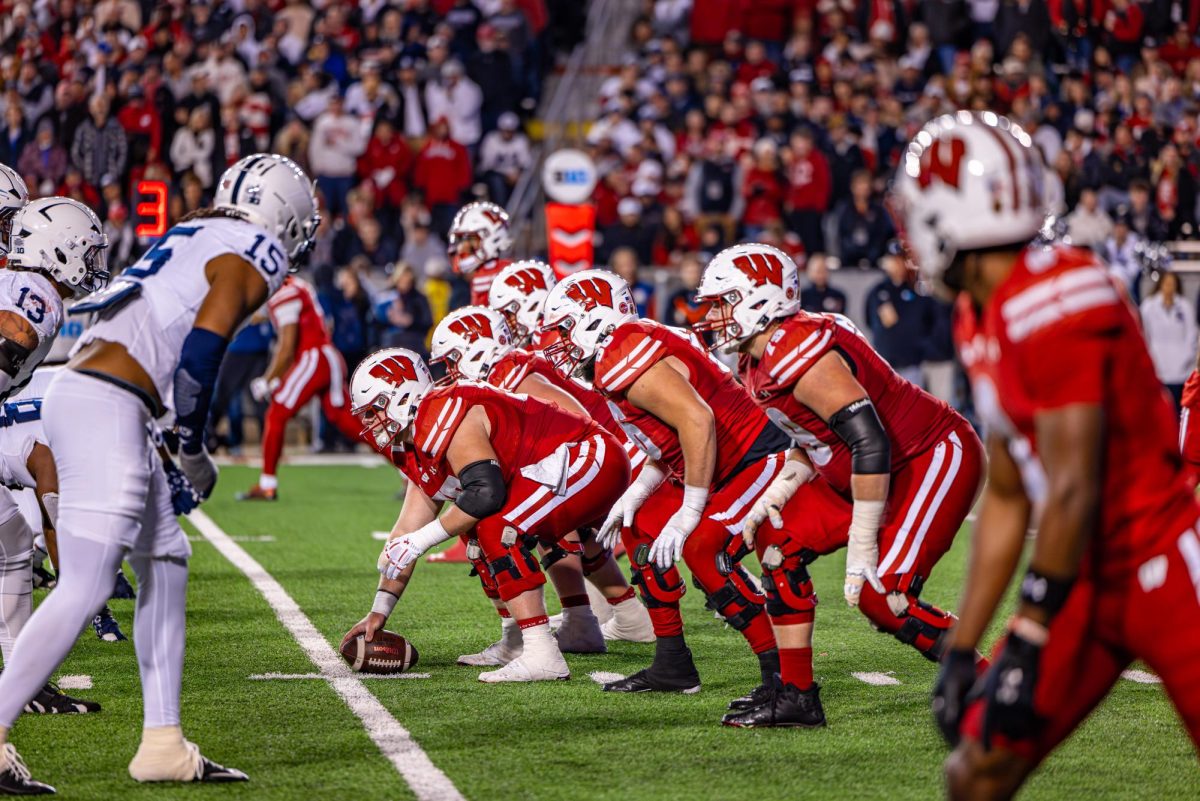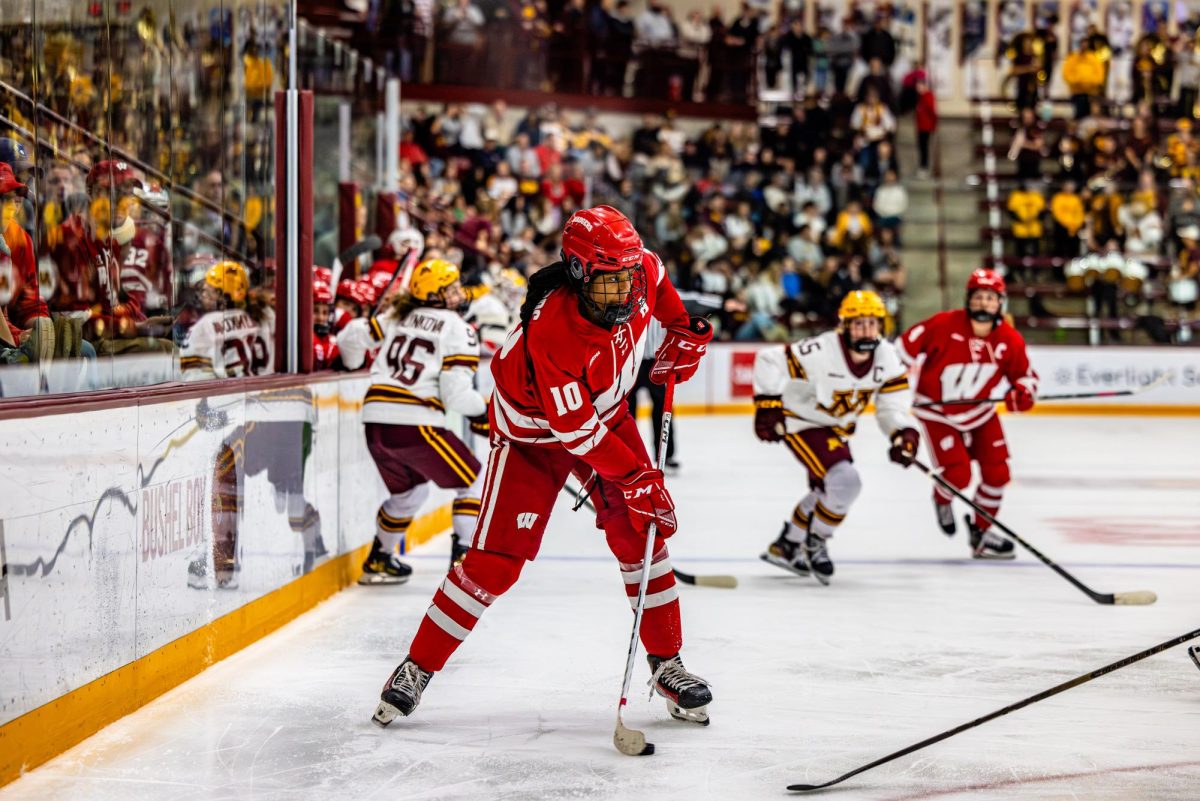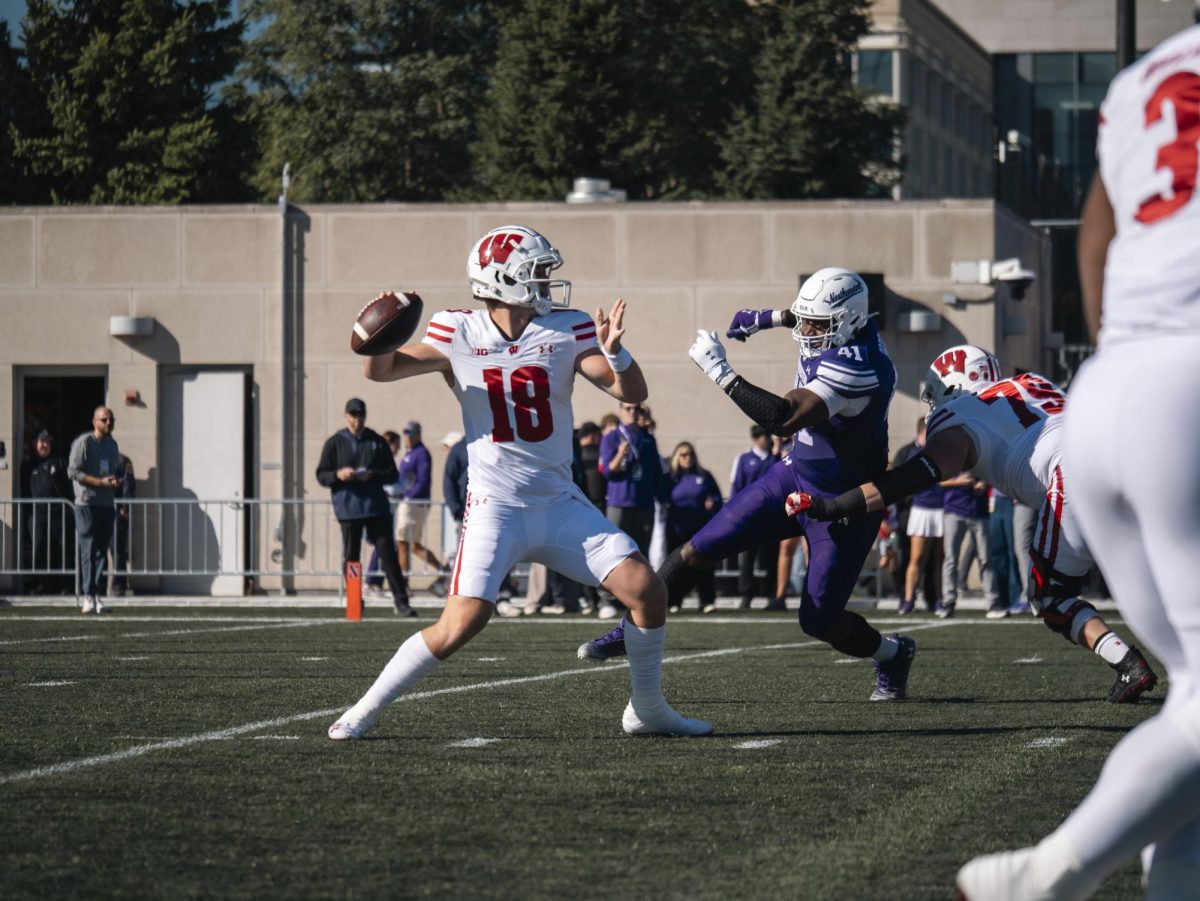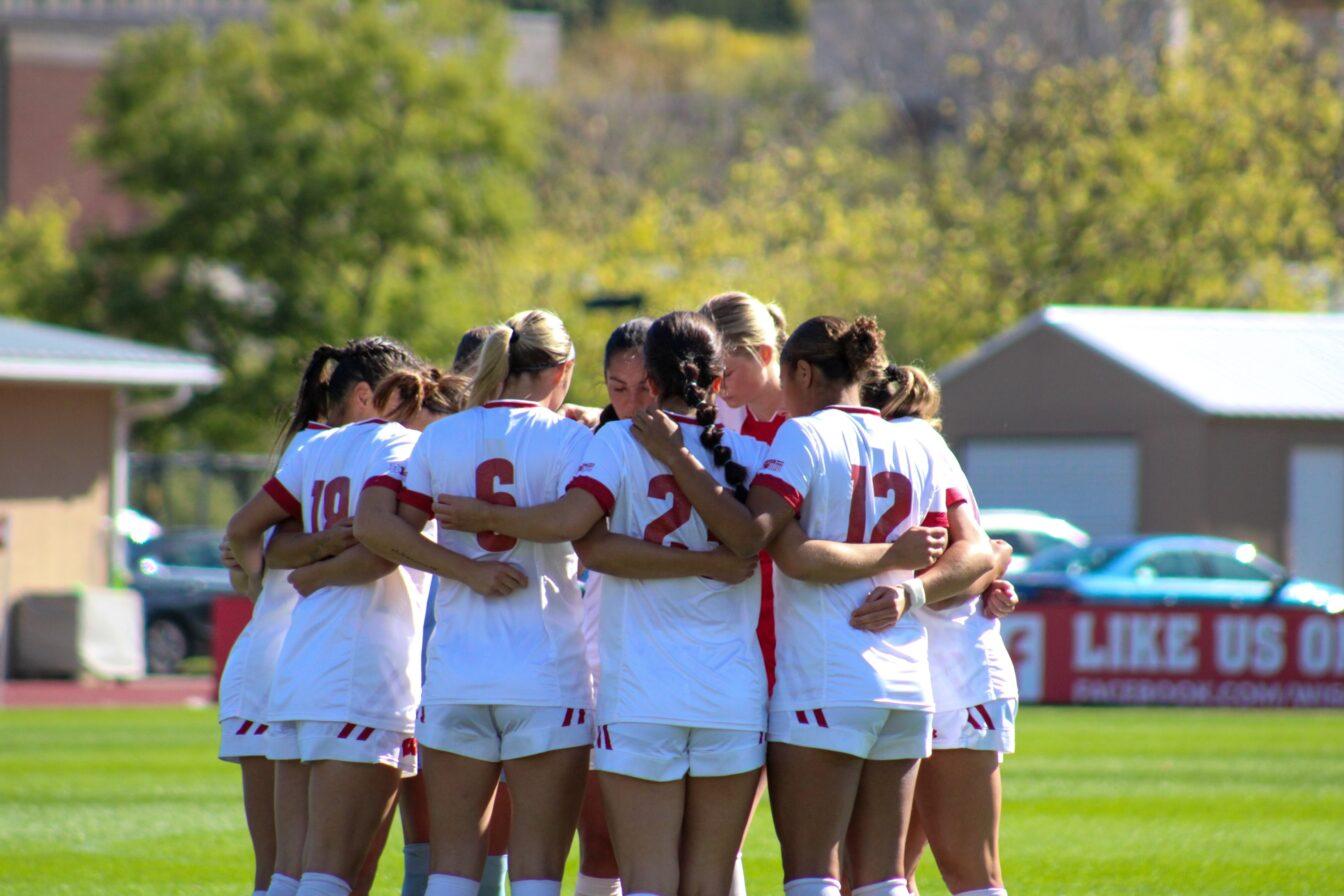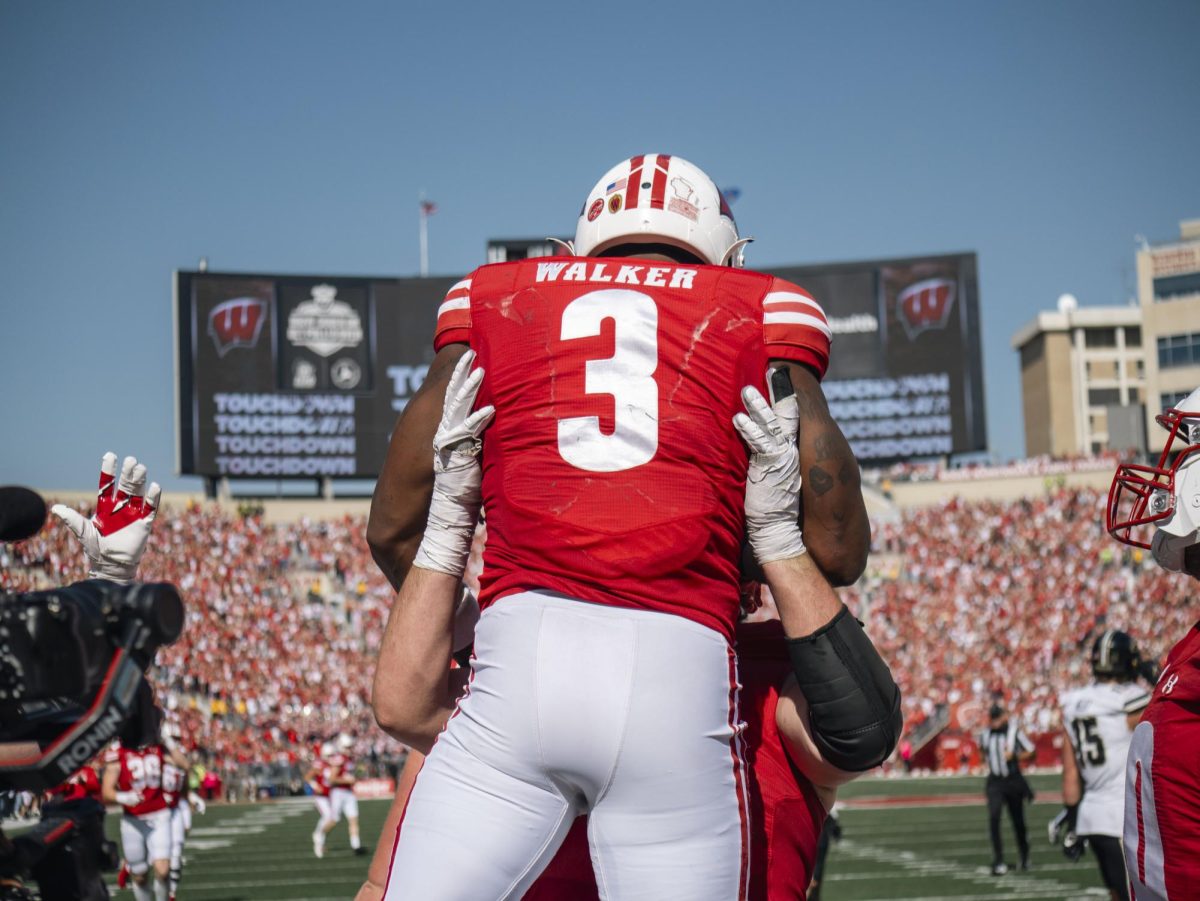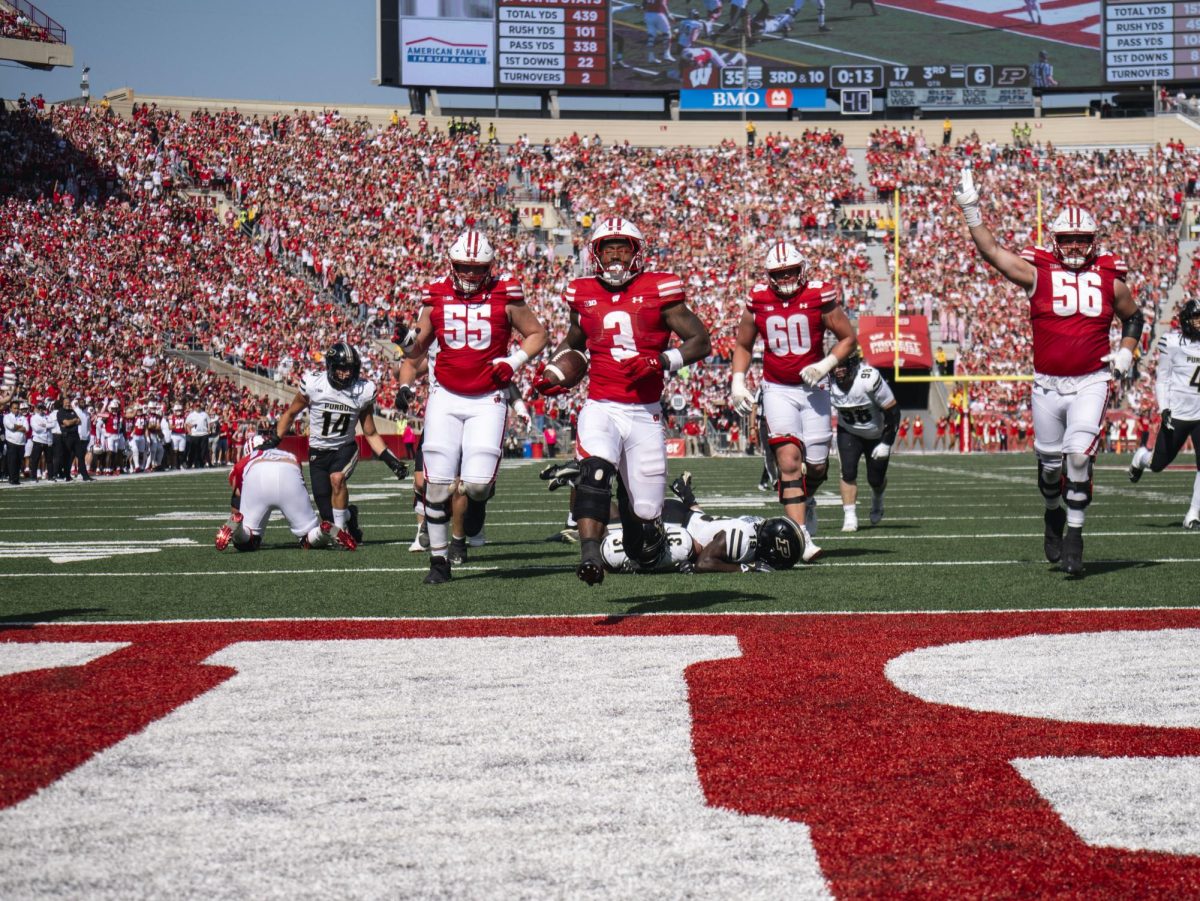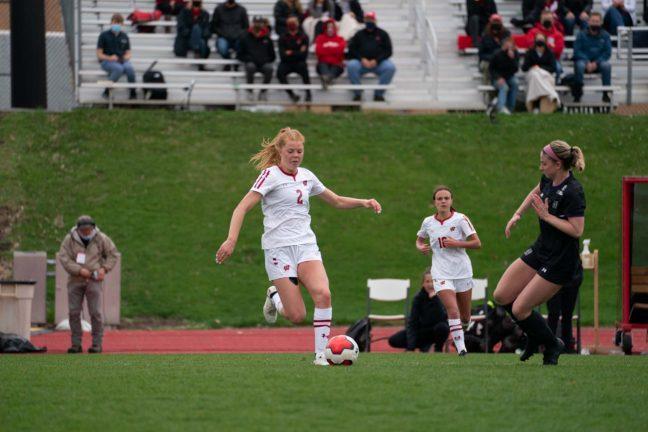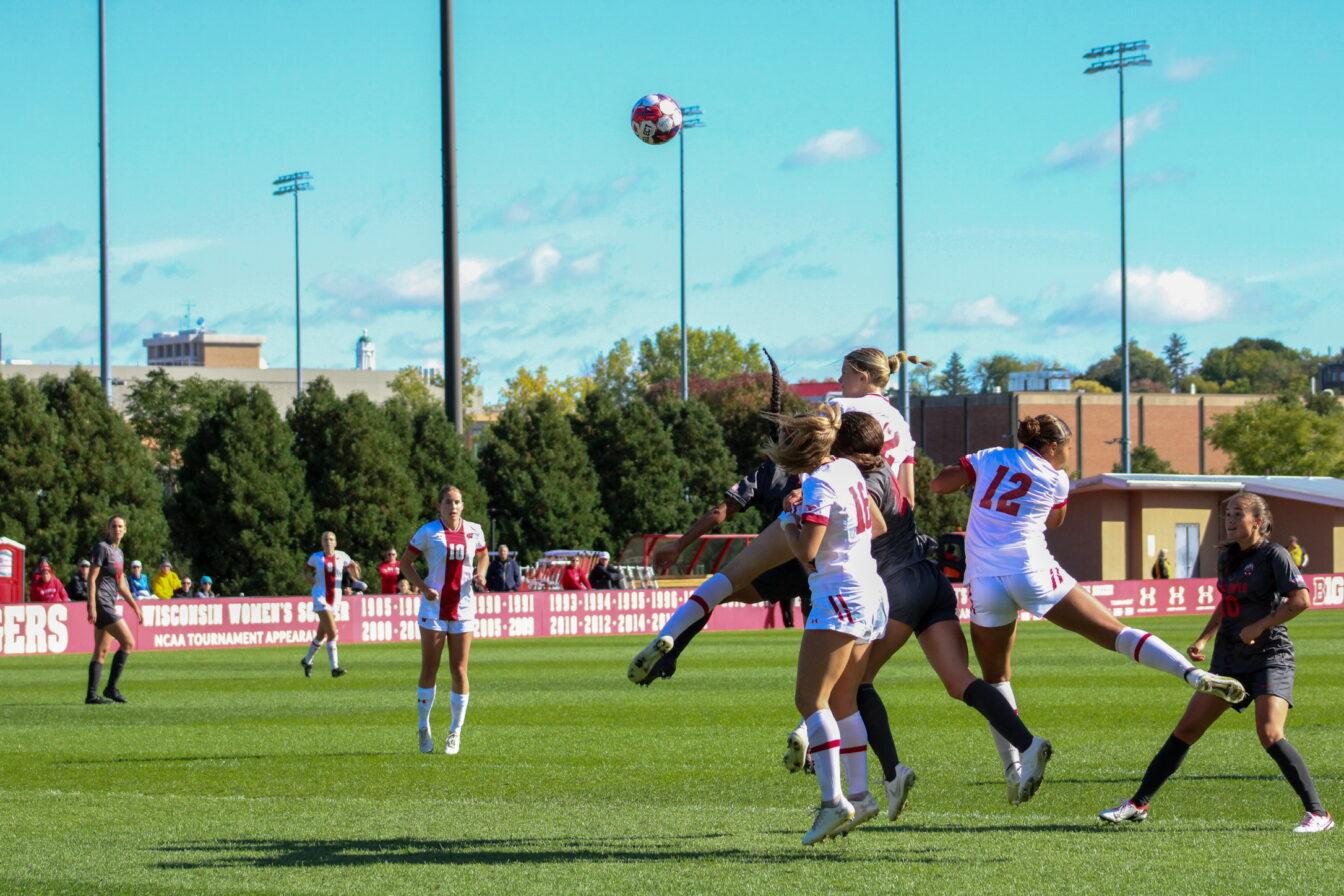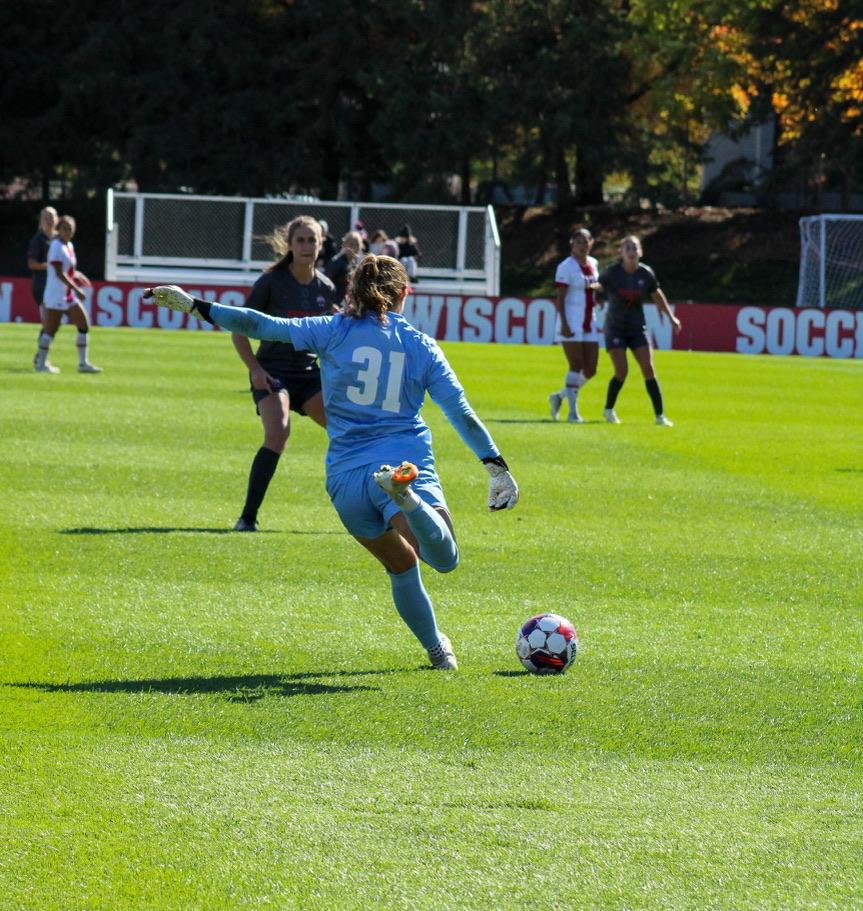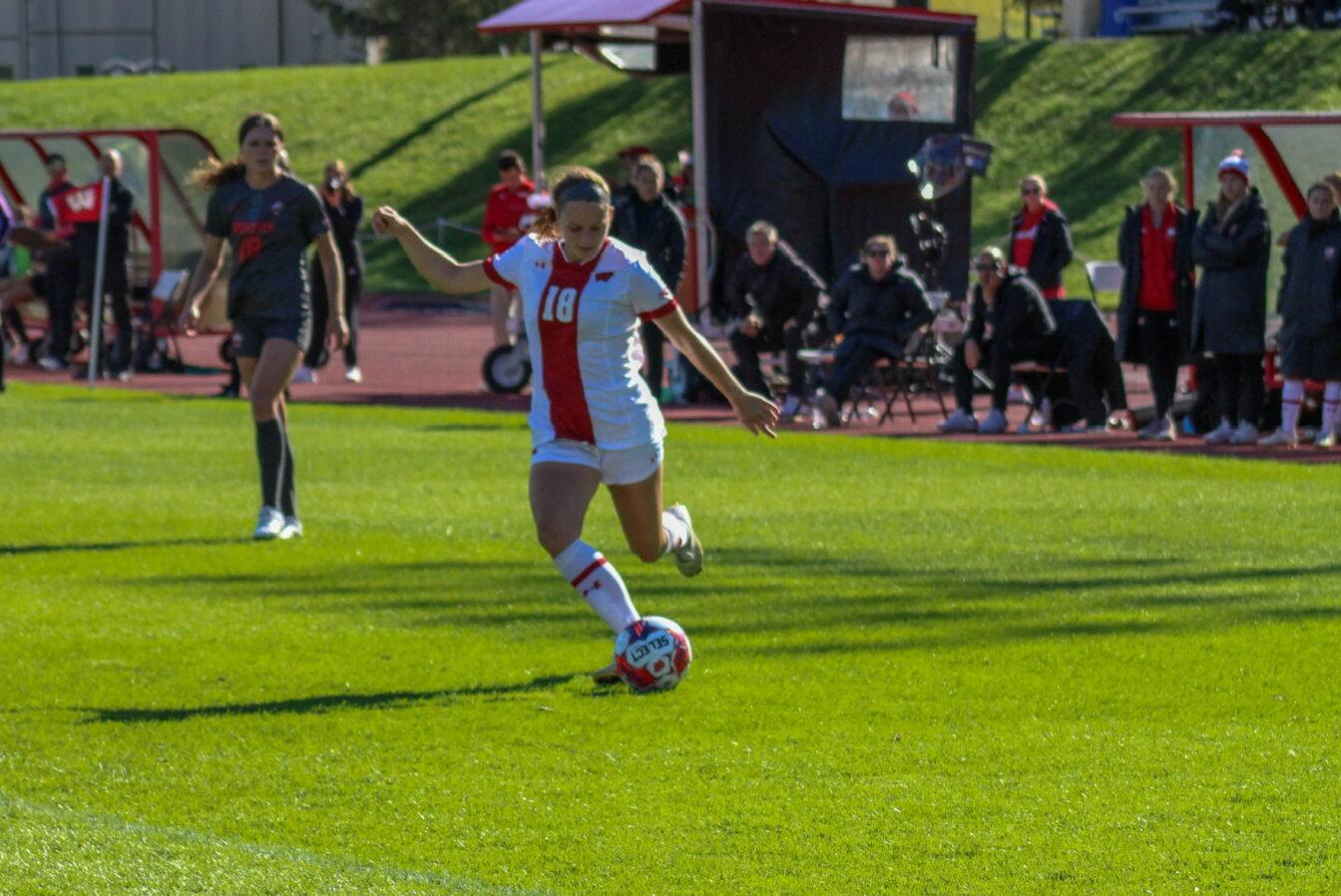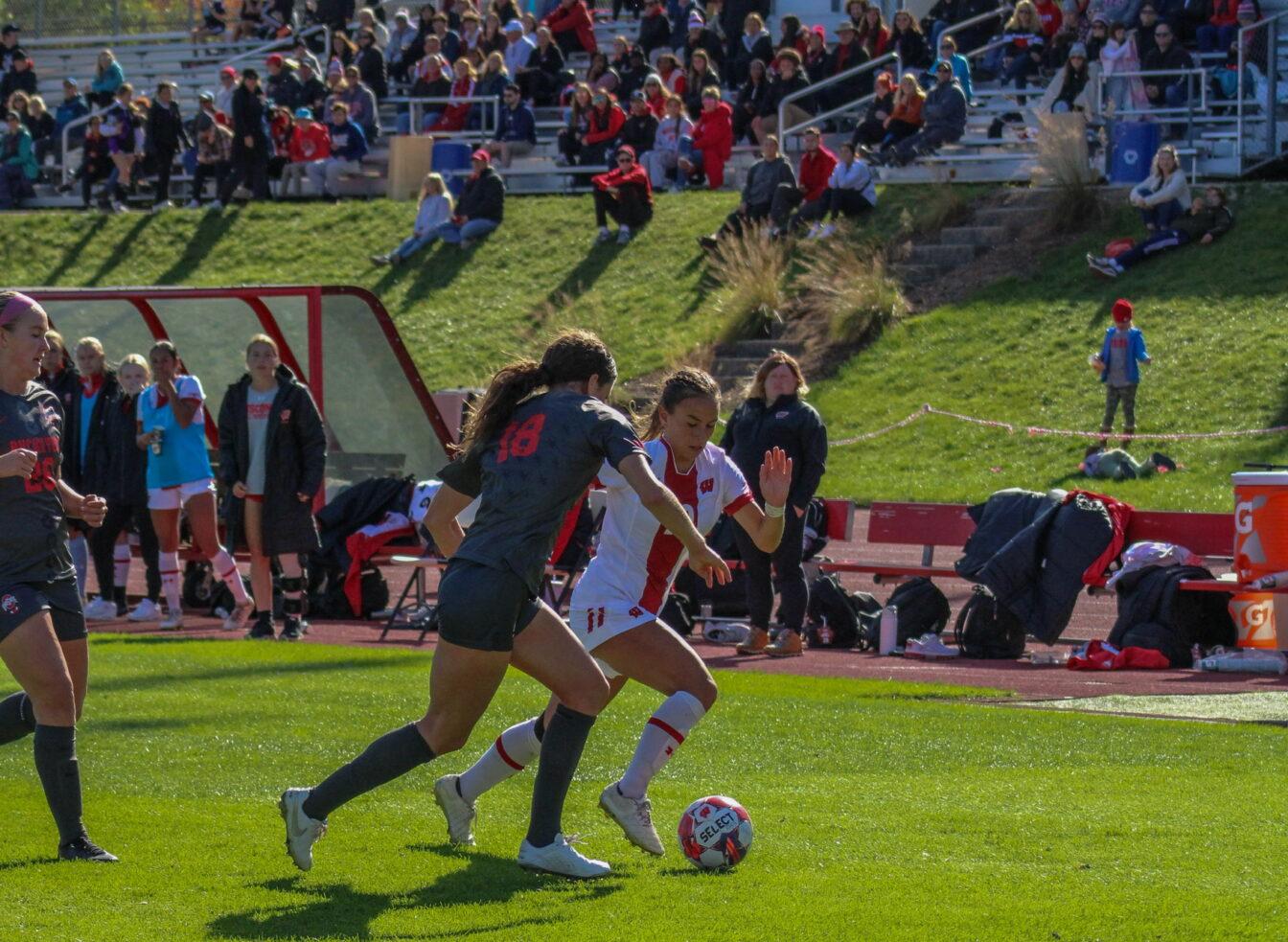Only seven years ago, Paula Wilkins was the mortal enemy of anyone involved with the Wisconsin women’s soccer program. In her 13 years as both an assistant and later head coach at Penn State, Wilkins’ squads dominated the Badgers year in and year out, beating the Wisconsin teams from 1994-2006 a total of 13 times while losing just once.
But in an interesting twist of fate, Wilkins went from loathed to loved when she became the head coach of the Wisconsin program, taking over for Dean Duerst who departed after the 2006 season. Now, with Penn State coming into Madison Friday for a crucial Big Ten game, Wilkins will be faced with an interesting situation, taking on the powerhouse program she had helped start.
It was in 1994 — the first year that Penn State sponsored women’s soccer as a varsity sport — that Wilkins, who was only a few months out of college, happened upon the assistant job accidentally. Wilkins had the intentions of attending Penn State for graduate school when Nittany Lions’ head coach Patrick Farmer offered her the job as his assistant, wanting a younger female role model to help the equally young program.
With her career having just finished, Wilkins couldn’t turn down the offer of staying involved with soccer.
“One of the reasons why I did it, I didn’t want my soccer career to end, so I thought that [coaching] was my way to stay attached to the game,” Wilkins said of her decision to take the assistant job at Penn State. “Then it kind of evolved. I thought I was going to get my Ph.D. and teach, and it’s basically being a teacher on a different level.”
Initially, according to Wilkins, Farmer had told her the coaching gig would last two or three years, but as it turned out that was hardly the case. Instead, Wilkins ran with the profession of coaching and seven years down the road found herself in a very special situation. When Farmer stepped down as head coach to become coach of New York Power of the Women’s United Soccer Association, Wilkins was chosen as the successor.
In her six years as head coach of the Nittany Lions, Wilkins led them to a first place Big Ten finish every single year and was Big Ten Coach of the Year on five occasions. But regular season success wasn’t the only thing Penn State was accustomed to under Wilkins, as two of her six teams made the College Cup – the equivalent to basketball’s Final Four.
Even with all the success, it wasn’t the wins that meant the most to Wilkins in her time in State College, Penn., but the relationships forged with the people around her.
“I went on to see people who were doctors and lawyers and teachers and parents and everything like that. Those memories will always stay with me,” Wilkins said, adding that one of her favorite memories was an elite eight match against Santa Clara played in 10 degree weather.
With any college sport, there was always a natural state of flux year-to-year with athletes coming and going, but the one constant was Wilkins’ assistant Tim Rosenfeld. Rosenfeld began his coaching career with the Penn State men’s team in the 1996 season, and a year later made the move to become an assistant with the women’s team, joining Wilkins.
After a year with the women’s program, Rosenfeld became the head women’s coach at St. Francis University in Pennsylvania where he stayed for three years. But it wasn’t long before Rosenfeld was back in State College. When Wilkins got the head job at PSU in 2001, he was the first addition to her staff.
From there, the brief relationship that had been interrupted for a few years began again, and this time for good.
Having a hand in the success, Rosenfeld played a key role in developing the program’s goalkeepers in his six years as an assistant, including two-time All-American Erin McLeod and three-time All-American Emily Oleksiuk.
Together, Wilkins and Rosenfeld experienced the exhilarating ride to some of the highest heights of collegiate soccer – Penn State went undefeated in 2005, going all the way to the College Cup semifinals before losing in penalty kicks to Portland.
“I think what I took away from it most is I kind of got to know what a championship team looked like, felt like, how they trained, kind of what it meant,” Rosenfeld said.
After an 18-5-3 season in 2006, Wilkins felt the tugs of curiosity that led her to desire new challenges from the sport of soccer.
“Well I wanted to see if I could rebuild a program. I think that was something that was very interesting when I sat with coach Alvarez. I said, ‘I don’t know if I can take a bad program and make it better.’ And he said, ‘Well, this proves if you’re a really good coach or not.’ I think that idea was just really kind of interesting to me,” Wilkins said of her interview for the Wisconsin job, conducted by athletic director Barry Alvarez.
“And the one thing that I think with coaching is that wherever you are, you can influence players,” Wilkins said. “That was something that I wanted to see if I could do in different environments and different things, if when you’re struggling or different issues, if this was something that was going to make me better in the long run.”
While Wilkins was offered and accepted the head-coaching position for Wisconsin, Rosenfeld was still at Penn State hoping to take the position Wilkins had vacated. But after the PSU athletic department chose Erica Walsh for the head job, it seemed like the perfect fit for Rosenfeld to join Wilkins staff at Wisconsin.
On their road trips throughout their time at Penn State, Rosenfeld noted that he and Wilkins would discuss some of the cities they traveled to. According to Rosenfeld, Madison was one of the cities that the two thought would be great to live in, making it fitting they ended up in Madison together.
Now seven years since first starting work on rebuilding the Wisconsin women’s soccer program and creating a winning culture, Wilkins and her dependable counterpart in Rosenfeld are once again on the ascension to the top.
But to see if the Badgers are becoming one of the better programs, Wilkins’ Badgers will have to knock off her former program – the no. 8-ranked and 15-time defending Big Ten champion Penn State Nittany Lions.
“It’s even hard every time we play,” Wilkins said. “I know all the players are gone, but it’s always a little bit of a challenge because obviously, I spent 13 years of my life there and I was one of the first coaches at the program. Secretly, you always want them to be successful, but I always want to be the team that takes them down because I would go for first to last and back to first again. I think it’s always a little bit emotional, but at the end of the day it’s about these players here, and that’s the most important thing to me.”


